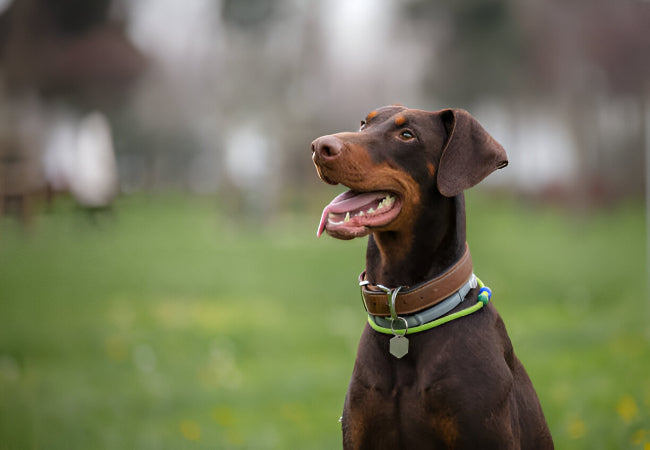Doberman Pinscher 2025 Guide: Temperament & Care 🐶

In this article
Doberman Pinscher 2025 Guide: Temperament & Care 🐶
By Dr. Duncan Houston BVSc
The Doberman Pinscher is one of the most elegant and intelligent working breeds in the world. Renowned for their loyalty, power, and versatility, Dobies serve as guard dogs, companions, and working professionals in police and military service. This veterinarian-approved 2025 guide explores everything you need to know about raising, training, and caring for this devoted breed. 🐾
📜 Breed Origins
The Doberman was developed in the late 19th century in Germany by tax collector Karl Friedrich Louis Dobermann, who sought a loyal yet protective companion. Bred from a mix of Rottweilers, Greyhounds, German Pinschers, and Weimaraners, the Doberman was tailored for intelligence, alertness, and athleticism. 🇩🇪
🧠 Temperament & Personality
Dobermans are fiercely loyal, alert, and quick to respond. Their temperament includes:
- Protective: Naturally inclined to guard their family and territory
- Intelligent: One of the smartest breeds—thrives with mental challenges
- Affectionate: Loyal and gentle with their people
- Energetic: Needs regular exercise and structured routines
🏡 Ideal Home Environment
Dobermans thrive in homes that offer structure, stimulation, and attention. Ideal households include:
- Active families or individuals
- Experienced dog owners who understand working breeds
- Secure, fenced properties or access to safe, open space
They’re not ideal for solo apartment dwellers unless daily engagement and exercise are guaranteed. 🏡
✂️ Coat & Grooming Needs
The Doberman has a short, sleek coat that’s relatively low maintenance:
- Brushing: Once a week with a rubber curry or grooming mitt
- Bathing: Every 6–8 weeks, or as needed
- Nail & Ear Care: Trim nails monthly and clean ears weekly
🏃♂️ Exercise & Mental Stimulation
Dobermans are working athletes and need serious daily engagement:
- 60–90 minutes of structured exercise daily
- Jogging, agility, obedience, or protection sports
- Training games and interactive toys
Without adequate activity, they can become frustrated or destructive. 🧠
🍗 Nutrition & Feeding
Dobermans benefit from a high-protein, joint-supportive diet:
- Animal proteins like chicken, beef, or fish
- Omega-3 and glucosamine for joints and heart health
- Digestive-friendly ingredients for sensitive stomachs
Feed twice daily. Use Ask A Vet to tailor a plan to your dog’s weight, activity level, and health status. 🍽️
🩺 Common Health Issues
While generally robust, Dobermans may be predisposed to several conditions:
- Cardiomyopathy: A serious heart condition—monitor for lethargy or fainting
- Von Willebrand’s Disease: A clotting disorder—screening recommended
- Wobbler Syndrome: A spinal issue—watch for stiffness or rear leg instability
- Bloat (GDV): A life-threatening emergency—avoid large meals before activity
Annual screenings and symptom tracking through Ask A Vet can support early intervention. 🩺
🎓 Training & Socialization
Dobermans are natural learners with strong drive and responsiveness:
- Start obedience training early
- Use positive reinforcement, clear commands, and firm consistency
- Introduce new people, pets, and environments early and often
- Ongoing training throughout life strengthens focus and confidence
🧘♂️ Emotional Health & Behavior
Dobermans are emotionally sensitive and crave human connection:
- Don’t isolate—these dogs need daily interaction
- Crate train for security, not punishment
- Offer calm environments and predictable routines
For behavioral challenges, consult a specialist through Ask A Vet. 🧠
🏁 Final Thoughts: Is the Doberman Right for You?
If you're looking for a loyal, intelligent, and protective dog that thrives on training and purpose, the Doberman Pinscher could be your perfect match. With the right care, discipline, and respect, this breed becomes a lifelong partner, guardian, and family member. ❤️
Need support customizing your Doberman’s care plan? Connect now via Ask A Vet!






